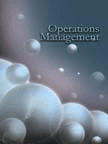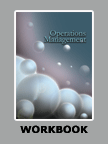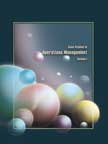PepsiCo's Distribution and Logistics Operations




|
|
ICMR HOME | Case Studies Collection
Case Details:
Case Code : OPER031
Case Length : 12 Pages
Period : 1991 - 2003
Organization : PepsiCo.
Pub Date : 2004
Teaching Note :Not Available
Countries : USA
Industry : Food & Beverages
To download PepsiCo's Distribution and Logistics Operations case study
(Case Code: OPER031) click on the button below, and select the case from the list of available cases:

Price:
For delivery in electronic format: Rs. 400;
For delivery through courier (within India): Rs. 400 + Rs. 25 for Shipping & Handling Charges
» Operations Case Studies
» Case Studies Collection
» ICMR HOME
» View Detailed Pricing Info
» How To Order This Case
» Business Case Studies
» Case Studies by Area
» Case Studies by Industry
» Case Studies by Company
Please note:
This case study was compiled from published sources, and is intended to be used as a basis for class discussion. It is not intended to illustrate either effective or ineffective handling of a management situation. Nor is it a primary information source.
|
|
<< Previous
"PepsiCo has continually been at the forefront of
standards adoption, promoting industry efficiency and adding value throughout
our supply chain."1
- Al Carey, Chief Operating Officer, PepsiCo Beverages and
Foods, North America.
Introduction
|
Headquartered in New York, the US-based PepsiCo is one of the world's leading
beverage and snacks food companies. In its 2002 annual report, the company
claimed to have the largest share in the US beverage markets (Refer Table I).
PepsiCo served diverse markets with its six group companies - Frito-Lay North
America, Frito-Lay International, Pepsi-Cola North America, Pepsi Beverages
International, Gatorade/Tropicana North America and Quaker Foods North America
(Refer Exhibit I). For the fiscal year ended December 2002, PepsiCo Inc.
(PepsiCo) reported revenues of $25.11 billion, an increase of 6.8% from the 2002
revenues of $23.51 billion (Refer Exhibit II).
|
|
Analysts felt that one of the main reasons for the company's massive growth
over the decades and the leadership status it has acquired in almost all its
business segments was PepsiCo's efficient distribution and logistics
management operations. Depending on the product involved, PepsiCo chose
between the various standard distribution methods employed, such as the
Direct Store Delivery (DSD) system, the broker warehouse system, the vending
and food service system and the pre-sell method.
|
|
PepsiCo
adapted these systems to the local conditions of the various countries
in which it operated. PepsiCo's
highly advanced distribution system was well supported by
state-of-the-art logistics systems. PepsiCo upgraded its technical
capabilities consistently in order to strengthen its logistics
management activities. PepsiCo's bottlers employed wireless technologies
to strengthen their distribution system and effectively serve the
customers in the markets in which they operated.
However, with its vast worldwide operational network and good market
presence globally, PepsiCo still did not put enough effort into
integrating and streamlining the operations of its various group
companies/divisions. |
This was undoubtedly a difficult task, but the then CEO Roger
Enrico (Enrico) announced the launch of the 'Power of One' program through
which, he said, the company would achieve this streamlining of operations, in
1998. PepsiCo would generate savings worth millions of dollars if the program
was implemented well. However, the program had not got off the ground even by
early 2004.
PepsiCo's Distribution and Logistics Operations
- Next Page>>
|
|



